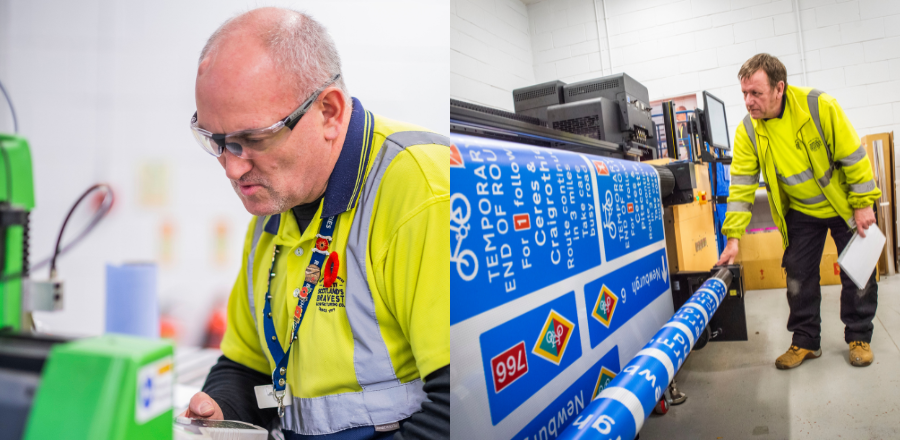New report shows how veterans' lives are being transformed through employment, training and qualifications

Approximately 15,000 veterans leave the Armed Forces each year Although most veterans successfully transition from military to civilian life, with over 80% of Service leavers finding employment, some require additional support.
Following the conclusion of a three-year research project, led by Glasgow Caledonian University and funded by Forces in Mind Trust (FiMT), an evaluation report has been published on the effectiveness of Scotland’s Bravest Manufacturing Company’s (SBMC) training programme in helping veterans transition to employment in civilian life.
‘‘An evaluation of impact within Scotland’s Bravest Manufacturing Company report’’ was carried out by Shirley Morrison-Glancy and Dr Philippa Dall in Glasgow Caledonian’s School of Health and Life Sciences, and Professor Artur Steiner and Dr Dani Hutcheon in the Yunus Centre for Social Business and Health.
To date, there has been a lack of rigorous evaluation evidence on the impact of employment programmes for veterans worldwide. A scoping review showed that existing studies come from the US, and that links with health and wellbeing outcomes were not well documented.
The report demonstrates the positive impact of SBMC's employment training programme at its social enterprise in Erskine, Renfrewshire on employability, skills, confidence, wellbeing and mental health. The report concludes with recommendations to expand such programmes, ensuring that more veterans can benefit from similar opportunities.
Yunus Centre Research Fellow, Dr Hutcheon, said: "Our research showed the importance of having formal recognition of the skills and expertise that veterans had, not just for employment, but also to reinstate a sense of pride and purpose that may have been lost after leaving the Forces.”
Findings also stated that the majority of participants had been attracted to SBMC as a workplace because it specialises in veteran employment, and they would be working with fellow veterans. There was also an understanding by many that SBMC was a workplace that was trusting of their employees and supportive of the needs of veterans and their personal lives.
“Further results of the research highlighted that there is a need for more supportive work environments like SBMC’s for veterans and that delivery of training should be flexible and tailored to veterans’ needs.” Dr Hutcheon continues.
Robert Lappin, Assistant Director of SBMC, who served in the Royal Engineers, said: “Working with our inhouse training manager our progressive employment training programme offers veterans the opportunity to gain qualifications while earning a living wage. The programme includes a range of vocational and employability skills, with a focus on personal development and confidence building. It also validates the skills and qualifications they learned in the Armed Forces. As we understand the needs of veterans, we have created a workplace culture where they can thrive.
“Our work also helps veterans to overcome life-changing injuries and mental health challenges and gets those who have been long-term unemployed back into meaningful employment. Every single person here takes great pride in their work as they deliver commercial projects for Bear Scotland, Amey, Forestry and Land Scotland and Scottish Canals, to name just a few clients
“The qualifications that our workforce gain at SBMC is part of a progression pathway to higher wages, more responsibility, and move on to other employers. SBMC is a subsidiary of Royal British Legion Industries (RBLI), a leading expert in veteran and disability employment. As a result of this study RBLI now aims to create a learning academy at Britain’s Bravest Manufacturing Co social enterprise in Kent that will mirror our training programme.”
